#‘ethical animal agriculture’ that exists as a possibility out there
Text
my sympathy for vegans getting a flood of “DEBATE MEEEE” comments versus my frustration that their explanations and reasoning for vegan-ness still being fucking shit
#‘why are you arguing against someones life choices! their behavior isn’t a reflection on you!’ well A) i’m not actuall the one being critica#critical in this scenario i know better than to actually involve myself in that shit#b) Once You Start Making Ethical Arguments That Inherently Involves Everybody Fucking Else#AND THEN WHEN YOUR ARGUMENTS HAVE HOLES IT JUST. ACK#sorry but regaurdless of whether humans bred chickens or sheep to produce a surplus of That Stuff We Get From Them doesn’t make the fact tha#that harvesting that surplus SHOULD BE (not IS) harmless irrelevant#think i fucked up the grammer there. love how you can’t see the whole tag in the tags system#on mobile i mean#and like. suggesting selective breeding to REMOVE traits humans tampered into animals is still fuckin assumptive of what we even actually#meddled with#like jfc. veganism is an entirely fucking rational response to the animal industry’s plethora of degredations towards dignity and life#JUST CITE THAT#and while the plant agriculture industry is also completely fucked people still rely on it moreso than meat thus the demand is inelastic#and also theres hypothetically more room for actually ethical consumption. probably#veganism isnt INHERENTLY a step towards more ethical environmental practices but done not-catastrophically-wrong its stil a fucking improvem#improvement! and likewise it isn’t the ONLY road to making shit more ethical at least if you can accept that there is some ideal ‘ethical an#‘ethical animal agriculture’ that exists as a possibility out there#not to mention the whole ‘personal choices versus systemic change’ thing and how whe our politics affect our personal consumption that doesn#‘t really mean dick-all compared to actual collective efforts
3 notes
·
View notes
Note
something interesting about people arguing that boycotting mcdonalds is really easy and how you don't need mcdonalds is that these are the same people that argue that being able to buy mcdonalds meals is necessary for the survival of poor people. like I regularly see people argue that their dollar menu is cheap and makes it possible for poor folk to eat 'well'. so like if that was true (which, lets be honest, the people arguing this have never been poor a day in their lives are you kidding me I couldn't afford to spend a dollar on only 6 nuggets that's not even a full meal and has limited nutritional value. I would rather spend a dollar on a pack of pasta and at least get multiple meals out of it. but that's besides the point) then trying to tell people that they are being selfish if they can't afford to eat something other than mcdonalds (again, we know that mcdonalds is not the poor persons paradise they want us to think it is but I'm using their logic) is so messed up. shaming people who (by their own arguments) cannot afford to eat anything else for not giving up their (theoretical) only source of food.
the contradiction of their world views is so confusing like they are out here arguing that vegans are classist for demanding people give up mcdonalds for the sake of others then turning around and doing the same thing. I'm all for voting with my money but unlike these people I actually apply it to all aspects of my beliefs and activism not just when it's convenient for me/my message damn.
I've been doing this for a long time but it is still quite jarring to see this play out, over the past few weeks especially. The sudden widespread acknowledgement of the power of boycott, the rapid development in understanding of what it's aims are, and the frankly miraculous sudden realisation that asking someone to boycott a brand to the extent that they're able to is not actually classist, or racist, or whatever else they've decided boycotting animal products is for the last decade of discourse.
I am also depressingly certain that as soon as the current boycotts leave the media cycle and people stop talking about them, they'll go right back to 'no ethical consumption under capitalism tho' and insisting that individual purchase decisions or collective boycotts don't make any difference.
This is something we should be used to, we have all observed the fact that people (and especially leftists) don't apply their existing logic or values to animal agriculture. So much of it really is just talk, because as soon as you ask someone to examine their own beliefs and how they themselves may be contributing to worker exploitation, animal exploitation and environmental destruction, they slip about six grades in basic comprehension and go back to spewing rhetoric that they themselves would laugh at in any other context.
72 notes
·
View notes
Note
2, 7, 16, 20 please <3
2. thoughts on veganism?
oh I'll just tell you the same thing I told my boyfriend a while back ~
factory farming is obviously bad; all things being equal it'd be obviously better if industrial meat farms didn't exist
all things not being equal, though, removing meat farms would have flowthrough effects on, e.g., the ability of people in poverty to get cheap nutrition. I think that it is likely that factoring in these costs, getting rid of or otherwise regulating industrial agriculture is would still be a net positive
being vegan is obviously at least morally good, in that creating less demand for meat means that less animals ultimately suffer
being vegan is probably not very morally good, in the sense that it costs time, money, and energy which, while varying from person to person, I think very likely could be spent at least as effectively on other causes, particularly since the net effect of an individual abstaining from meat and animal products is likely very small
I'm agnostic on whether a) it is possible to farm meat in an ethical way at all and b) whether it's possible to do so in a way that makes it accessible to more than a minority of the population
I believe with low confidence that it is possible to farm non-meat animal products ethically, and am agnostic on whether it's possible to do so in a way that makes them accessible to more than a minority of the population
however, both of those last two points strike me as more of a philosophical curiosity than a real point of activism, since factory farming makes such a majority of meat/animal products anyway
7. what animal do you look forward to seeing when you visit an aquarium?
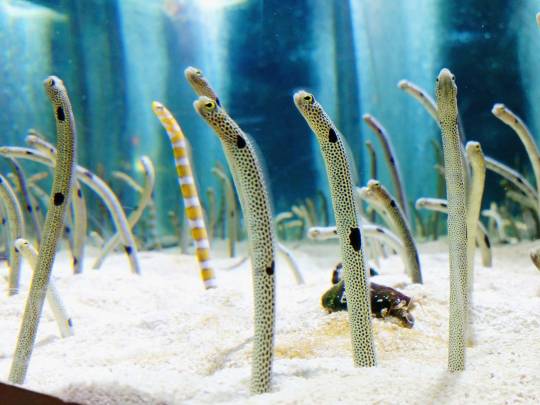
!!!!!!!!!!!!!
16. thoughts on mint chocolate chip?
I'd never seek it out, but of course I'll eat it if it's given to me 😘
20. favorite disney princess movie?
it's all ya fault, jafar!
10 notes
·
View notes
Text
I’m not interested in debating PETA, why we even engage in their arguments is beyond me. I do think, though, it’s possible to be more critical of some dog sports than others and I don’t think scare messages like “they’re coming for one sport, they’ll be coming for them all” should persuade us to uncritically support ALL dog sports.
I know what organisations like PETA want; they want to end any and all association with animals, from agriculture to pets. It doesn’t matter what they say or do, their goal does not change. Why should I engage with it at all? But I am interested in engaging in discussions about dog sports, how to make those sports safe and how to ensure we are doing right by our dogs at every point.
I’ve been pretty vocal about why I’m against greyhound racing, and it’s not actually about the sport itself. I don’t think racing dogs is cruel, I think the greyhound industry as it exists in Australia is cruel. I do not feel this way about other dog sports because other dog sports do not operate in any way similar to that industry. That industry is rooted in gambling; the profit from gambling supersedes all other interests.
In regards to other sports, the ethics are more rooted in the dog’s enjoyment and the dog’s fitness. I don’t think risk of injury is a reason to not do something, especially to not let your dog do something. We should absolutely mitigate the potential for injuries in any way we can, but dogs injure themselves without even trying. Discussions around flyball and other similar sports should be framed as discussions of high impact sports because that is what they are.
But I don’t think the average dog lover actually cares that much about injury. The reason I say this is because most injuries in dog sports aren’t going to be recognised by a layman. Wipeouts aren’t that common, but that’s what the average viewer of something like Crufts is going to notice. The most common injuries are going to be a lame leg after the trial, a stiffness or soreness that the handler notices, a twinge that is only recognisable in the dog’s tense body language.
I would say the bigger issue is the concern about consent. The idea that handlers are somehow forcing their dog to do something. Why this has become the main point of contention I find difficult to understand, but I recognise that it is. I cringe whenever Crufts commentators say things like “we don’t force the dogs, they love every second of it” but it’s because they know this is the point of contention. However, I don’t think that statements like this are going to help. It’s not really any good to just say “I’m not forcing my dog to do it” to someone who knows nothing about dog sports. What we need to be communicating is dog body language, dog behaviour, dog husbandry and dog genetics. We need laypeople to understand dogs as they are, not as we imagine them to be. But this is the same issue that is faced by everyone in the dog world, the same issue that frustrates us all constantly, and clearly it’s the hardest problem to solve.
But we can’t be communicating this defensively, in reaction to organisations that are only ever acting in bad faith. We ought to be changing our methods to be proactive, to communicate in specifics and with clarity. We need to explain why dog sports exist, how they came to be formed, why we practice them, what our dogs get out of it and how we mitigate any risks associated with them. I wish that our leading bodies would take more initiative like this rather than relying on arguments around tradition or supposed common sense.
#dog thoughts#these are my thoughts#I am not interested in argument#I am interested in good faith discussion though
18 notes
·
View notes
Text
People getting mad at vegans because of the existence of synthetic leather is truly baffling because...they are not the ones using the vast majority of it or driving the demand for it. Only like 1% of ppl in the us are vegan; they are not a terribly influential marketing demographic. (Also most vegetarians don’t wear leather either but for some reason people tend to only focus on vegans specifically?) I feel the need to mention here that I myself am not vegan or even vegetarian, because I suspect that people are likely to just tune this post out otherwise.
“Vegan” leather is just an upsell for cheap plastic fabric; it doesn’t mean it’s specifically marketed toward vegans or that they are the main consumers. It’s manufactured because it’s cheap, not because it’s vegan. The primary distributers aren’t high end vegan retailers...they’re fast fashion retailers like Forever 21, Zara, H&M, those cheap Target brands, etc that churn out new trendy products on a weekly basis that are made in sweatshops and meant to fall apart within 6mo so you gotta buy more. The primary consumers are the people who shop at those retailers & who don’t purchase real leather for financial reasons, not ethical ones.
You’re mad at CAPITALISM, not vegans. You’ve been effectively misdirected. Capitalism is the demon running sweatshops. Capitalism is the demon ruining the environment. Blaming and fighting with other working class ppl for capitalism’s failings like dogs over scraps only benefits the wealthy. Focus your attention where it matters instead of blaming, uh *checks notes* people who don’t eat animals.
Possibly more important is the fact that it’s not even based in reality:
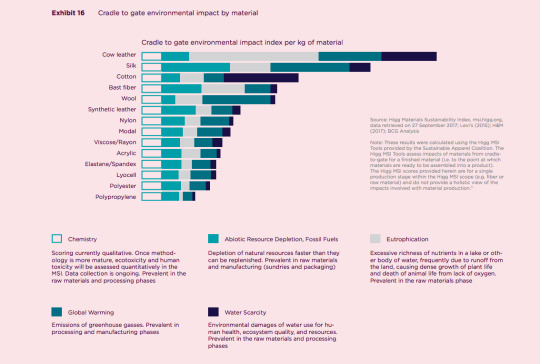
Industrial animal agriculture is one of the worst offenders for climate change and environmental impact. Leather tanning & manufacture is absolutely awful for both the environment and for the health of the sweatshop workers who make it. The obvious solution here is just to purchase used leather (or faux leather) if you wanna wear it. You should probably be buying more used clothes anyway.
Again, I am not vegan or even vegetarian; it’s just bewildering to me that people have such a kneejerk negative reaction to...ppl who don’t eat animals?? that they’re willing to immediately abandon all sense of material analysis instead of blaming everyone’s common enemy, which again is always capitalism!
16 notes
·
View notes
Text
MOVING AROUND TOWN
Today life in the country is not the best but country life is said to be the best life since you live in a place of peace and harmony where you and others had nothing to worry about apart from being happy and enjoying your life.
If you are thinking of living in a country, keep in mind the advantages and disadvantages.
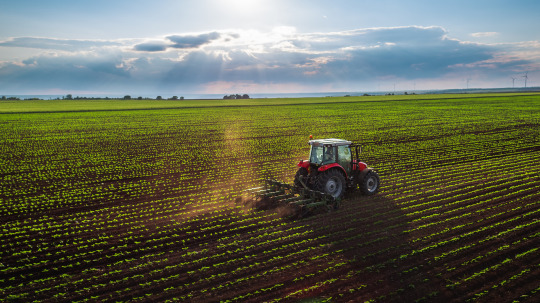
advantage
1. Tranquility and pure air
Pollution problems are becoming more common every day in large cities, and good proof of this is that, for example, in Madrid, measures such as the ban on parking in the regulated parking area for non-residents have recently had to be activated or even the prohibition of driving on certain days depending on whether the vehicle's license plates were even or odd.In the countryside these things do not happen, and therefore the quality of the air is much cleaner and, consequently, the lungs of those who live there enjoy better health as a general rule. And if we also talk about practicing a sport such as running, imagine the difference between running between exhaust pipes or running outdoors in the field. The same, right?
There is nothing like enjoying a place that gives you tranquility and the possibility of breathing fresh air. That allows you to get away from the noise and help you find yourself. Something almost unthinkable in the big city.

2. Lower prices
In addition to the fact that a good part of the food consumed in the field is usually self-produced, life in general tends to be more generous with your pocket.
3. Greater security
Due to the isolation, the low concentration of population and the ethics present among the inhabitants of the same place, crime in the countryside is usually low.
4. Greater sense of community
Life in the field encourages collaboration, with all the ethical and value benefits that this implies.
5. Direct contact with nature
In the field, animals and plants take on another importance. Contact with nature will be present in all its forms. "

disadvantages
1. Less active social life
Rural areas do not have the activities carried out in the city or the facilities it offers to socialize with other people.
2. Less connectivity
The latest technology takes longer to arrive, and connectivity levels are often low in rural areas.
3. Less access to health services and means of transportation
Without the organization, infrastructure and population concentration of the city, easy access to hospitals and means of transport is difficult.
4. Lifestyle can become monotonous
This to some extent is relative. For someone used to city life, the country can get boring and monotonous.
5. Fewer job opportunities

Job opportunities in the workplace are limited. Usually focused on agriculture. Businesses of all kinds tend to work better in the city.
Who has not happened to him that he has tried to fall asleep listening to the continuous passing of vehicles on his street, people coming and going to party making a noise, car alarms sounding ... while in the field the night noises are almost non-existent and, at most, we may have to deal with the sound of crickets or some animal in mating season. Without a doubt, a benefit at the level of acoustic stress that our body would appreciate if those of us who live in the city did not have.
that's why I invite you to live in a country place!!
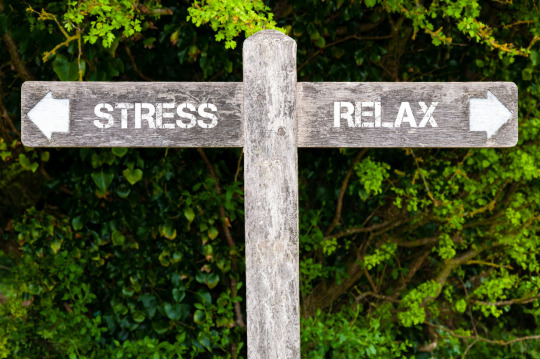
1 note
·
View note
Note
Veganism isn’t necessarily about sustainability, it’s and ethical stance about an animals right not to be killed unnecessarily for the use of humanity. There’s obviously crossover between veganism and environmental activism, but your sustainability argument (which is really questionable - large livestock that get made into leather are an incredible drain on the planet) isn’t going to sway any actual vegans.
Hey, I'm not looking to make vegans stop being vegans. The meat industry is one of the biggest existing threats to our environment alongside being a horrific carnival of animal and human suffering, and I totally support the decision to avoid contributing to it's survival wherever possible.
On the other hand, though, we do need to be able to take a good hard look at all our options and be frank about the practicality of what we have going.
Do I want cows to live healthy, happy lives? Yes. Do I want children on the other side of the world to be able to grow up safe and protected without having to work in sweatshops to survive? Also yes. Can I always have both? No. So when it comes down to the wire, I will always choose people.
And 'veganism isn't about sustainability'? It should be. Because no matter how much you love an animal, it will still die suffering if you force it out of it's natural habitat in favor of a hemp or soy farm.
Industrialized leather comes from the death of an animal, is processed with chemicals and dyes that pollute the water, and is assembled by factory workers.
Plastic comes from oils that are pumped and processed by workers whose health support is cut to the minimum, it releases harmful gasses into the atmosphere, and shreds apart and filters into waterways and animal's digestive tracts.
Cotton and other plant fabrics are genetically modified to be as agriculturally competitive as possible, which forces generations-old farms into the dirt to be bought up by foreign investors (us) who buy it up and use pesticides that are so dangerous to human, animal, and insect health that they're illegal in our own backyards.
We burn down the Amazon to make way for cattle so we can eat meat more than we strictly need to.
We poison entire villages and skyrocket stillbirths and cancers so we can buy clothes faster than we wear them out.
And then we turn around and cut the sustainable hunting rights of aboriginal nations because the idea of them killing things makes us sad.
The sad fact is, there are no morally pure options anymore. We've grown beyond that. There is no path you can take that doesn't cause some amount of pain.
But the way I see it, the pain of buying a second hand leather coat from a thrift store, knowing a living thing died for it, and the pain of buying an acrylic/cotton plastic-coated rainjacket from, for argument's sake, that same thrift store... That's a splinter to a broken finger. And right now, that's the best I personally can do.
199 notes
·
View notes
Text
Veganism for Conservation
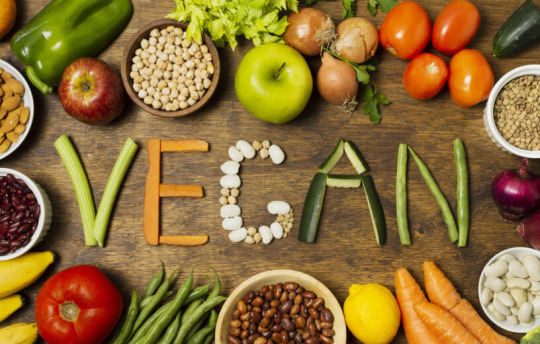
Wikipedia defines veganism as “ the practice of abstaining from the use of animal products, particularly in diet, and an associated philosophy that rejects the commodity status of animals. An individual who follows the diet or philosophy is known as a vegan.”
This is different than vegetarianism, which is a non-meat diet. Vegetarians still use animal products like eggs and dairy, while veganism does not. Some people that practice veganism extend the philosophy to their clothing, not wearing leather, and sometimes even wool.
A lot of us have probably interacted with vegans on the internet in posts such as this:
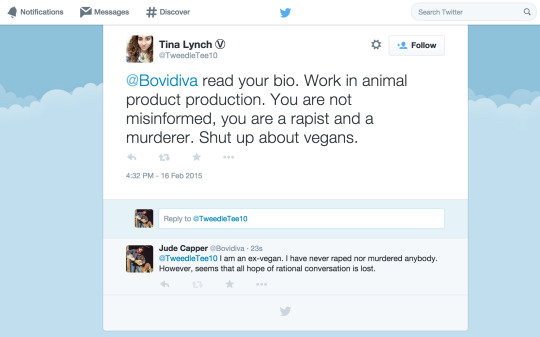
Personally, my interactions with people who practice veganism have been limited to glimpsing internet brawls like this. Because of this, vegans get a bad name. I’m sure Christians can relate: that one wild-eyed priest going on about how homophobia is a sin. He may speak for all Christians, but he cannot represent them.
My point of this is, going into this post, please approach veganism or vegetarianism with an open mind. This post is not hating on vegans, and it is not trying to convert anyone to veganism. By pointing out the strengths and weaknesses of vegan and non-vegan philosophies, I hope to increase understanding.
Where Veganism Succeeds

When it comes to images like this, vegans and vegetarians are sometimes the first to call out animal cruelty. This is not without substance. This PDF article from the University of Kentucky covers some of the issues very well. The main issue is Confined Animal Feeding Operations (CAFO) or “factory farms”. The ultimate goals of the factories are ‘cheap food’. Animals are kept in confined spaces, and given antibiotics and growth hormones to counteract the spread of diseases and parasites (in some cases it doesn’t work). Ironically, some of these drugs are outlaws in the UK, due to the adverse human health effects. Factory farms are a monopolized industry free of heavy regulations of other large-scale operations. Though the FDA and USDA oversee inspections and health regulations, it only helps so much. The Animal Welfare Act of 1966 does not extend to farm animals.
A common response is “Shut down farms!” But it’s not as simple as that. The next article covers the Pro’s and con’s of farming. Farms are run different in different places of the world, and always full of contradictions. Livestock can improve the health of prairie grasslands, but also overgraze them. Animal manure can improve soil health and pollute rivers. While places like America need less meat, poor families in Cambodia may need more protein in their diet. I whole-heartedly support shutting down CAFO’s, but farming in general. Small-scale family farms are a great example of farming with ecosystem and animal health in mind.
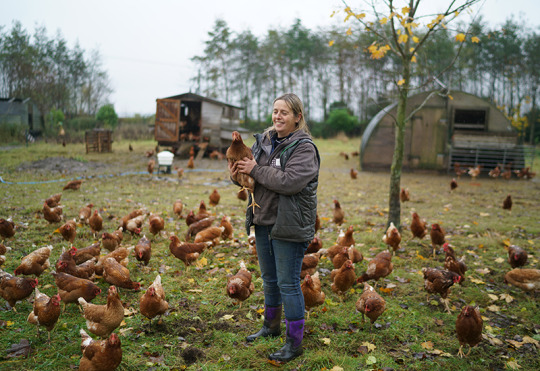
One problem with holding animals indoors - even if you feed them well, make them comfortable, keep them from getting sick - is lack of mental stimulation. No species on Earth processes the world the same way. Cows don’t think they same way humans do, but they are living animals designed to do certain things. A video I watched last year for my animal behavior class (If I could find the video, I’d add it) followed a group of hens brought from a factory farm to a new free-range home. A series of experiment were set up to observe their behavior. When presented with building materials, the hens proceeded to build a nest - even though a nest was already made for them by the caregivers. Animals have inherent behaviors that they will carry out if giving the opportunity. This may not have any impact on the health/quality of the meat or products, but it can give the animals mental exercise and therefor reduce stress.
Recent years have brought in increased in what is dubbed the “locavores.” Locavores is basically a person who eats locally, or within a 100mile radius. They may buy more produce from farmers markets, or get their meat from hunting and fishing locally. (Minnesota has a bag limit of 5 whitetail deer. A successful hunter could stock up food for their family for an entire year without ever buying meat from a grocery store!). Food handling, processing, and transportation takes up a lot of our yearly energy costs, not to mention food shipped from another country is going to be more expensive, and sometimes, less fresh.
The Locavores Movement wasn’t exactly pushed by vegans, but I’m going to include it here because it’s a win for everyone. After WWII, agriculture was becoming more commercialized. Big, industrial farms with lots of land and machinery was out-competing small family farms. Later on, the 60′s and 70′s sparked a ‘back to the land’ movement (a big time for environmental policies). It encouraged relationships between communities and local farmers. Though many small family farms are still financially struggling, the Locavores movement is increasing, as people are becoming more aware of where their food is coming from and their dietary health.
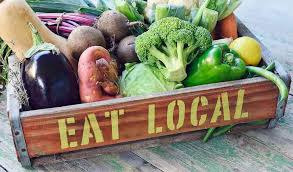
Where Veganism Fall’s Short
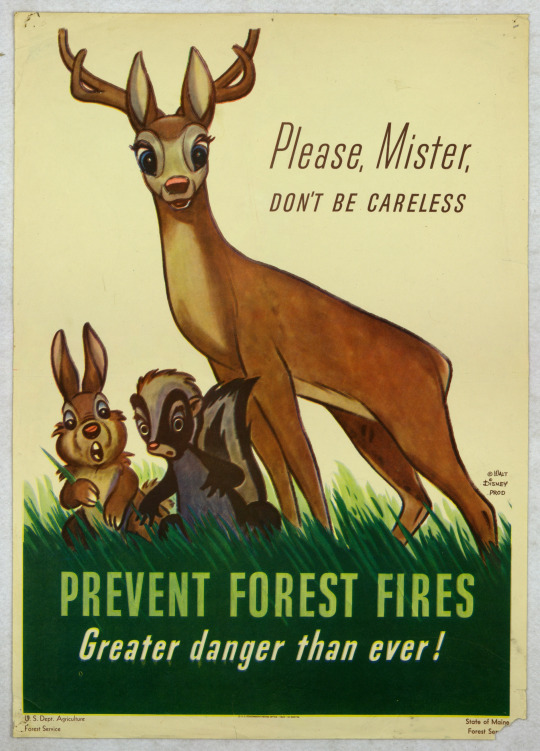
Animal anthropomorphization - defined as ‘ the attribution of human traits, emotions, or intentions to non-human entities’. Giving animals human-like appearances such as walking on two legs, fingers, eyebrows, and having them think and act like humans. This is present in any Disney cartoon regarding animals. Bambi is the most famous, and even created what is known as “Bambi Syndrome”, a belief based on the movie that paints nature as a garden of Eden with no natural predators - which is grossly inaccurate.
Anthropomorphization is not inherently bad, I enjoy watching Disney cartoons and sometimes its fun to imagine animals acting like people. However, there are people who seem to believe than animals really do process the world exactly like people do, and their interactions with the environment and other animals are similar to human - situations. Ex: a bunny rabbit and a deer chase each other around - they must be best friends! People forget that for wild animals, even suburban wild, is a constant struggle for survival. Humans partook in this once to, but now we have grocery stores and houses. We take for granted our ability to get food every day, and go home to a warm night’s rest. Animals don’t have that. Wild animals are focused 24/7 on survival - where to get food, are there any dangers around, ect. Once an animal has gained enough resources to survive day to day, then they can focus on reproduction. After that, in some cases, the focus is on rearing young. And then the cycle is repeated.

The biggest argument comes down to the idea of death. Vegans argue that the act of killing animals is immortal because animals fear death just as humans do. This is true: the fear of death is present in all species. It is an important driver for evolution. Organisms are constantly coming up with new ways to avoid death caused by changes in the environment.
But death is still a really important thing.
Death is something that has to happen, because that is how nutrient cycling works. One organism collects material from the environment until it stops, and those nutrients are redistributed to other organisms. The longer an organism lives, the longer it holds onto those nutrients instead of redistributing them.
The argument that ‘all animals want to live’ is obvious and does not address the fact that death is a natural and important part of our world - just as important as life. Why do humans make such a big fuss about it? Because we have the time and the resources to do so.
Giraffes don’t have time to sit around and contemplate life and death - they’re busy living. They’re busy foraging and migrating and kicking lions in the head. We have to remember the human experience of the world is unique to us - we are the only species that exploited resources so efficiently, we had the time and energy to build Society. Every word and concept in our mind is a imaginary construct, or translated from what we’ve seen in nature. This includes death - a natural process we witness and created an abstract essence around that both increases and diminishes our fears of the inevitable. (Sorry to readers experiencing existential crisis’ - hang in there, take your time. This really is mind-bending stuff when you think about it). Death didn’t have a name until humans created one. We created stories of Grim Reapers and Angels and Demons. We see shadows out of the corner of our eyes and call them ghosts.
But, do we have a right to cause the death of other organisms? Well, in nature, what is a ‘right’? Does the gazelle or the leopard have a greater right to live? My arguments may see really heartless and objective, but I am a biology student, so I have to look at this from an ecological perspective. Why do we look at the animal world through a tight lens of human understanding when we now have to tools to see more? How can we assign human concepts to a world that exists beyond our understanding?
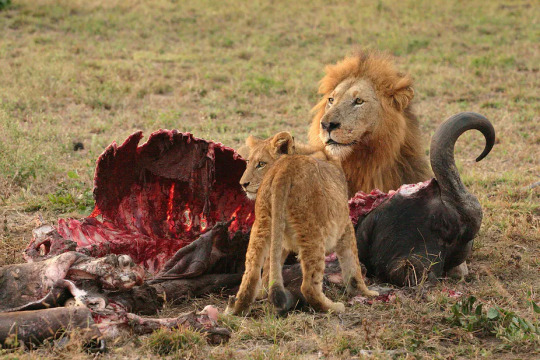
One of emotions we have created do to the development of society is ‘guilt’. Its possible this emotion exists in other animals too, such as a mother who couldn’t protect their young. Guilt has evolutionary advantages of strengthening social bonds, and inciting a change of behavior. But humans are unique in that we extend this guilt beyond our immediate families to multiple other species. Pet owners may experience this when they accidentally step on their pet’s paw.
This philosophy of including other species in our perception of the world is amazing, and very important. Aldo Leopold, a professor of ecology at the University of Wisconsin, wrote in A Sand County Almanac that extending human ethics to the land and its animals was essential for conservation. We need more people involved in biology and environmentalism, but we need them to have a proper understanding of life and death processes of other animals.
Wild animals deal with death much more often than humans do, and not in the same way. An article from Stat News claims half of Americans now die at home in hospice care. I can’t hypothesize numbers, but its same to say that a lot of people, especially in rich countries, get a ‘gentle’ death - in bed, surrounded by family members, eased with pain medications. Animals don’t get that. The quickest, non - human way for animals to die is by being kill by something else. Lions tend to bite the jugular of prey to asphyxiate it. The animal is dead by the time the lions start eating it, but it did not die quickly and peacefully. It’s last moments were being chased by lions, having lions dig their claws and teeth into its body to knock it down. It will take at least a full minute or two to suffocate the animal before it dies. Imagine the last thing you see is a lion biting into your neck - that’s terrifying!
Some deaths are quicker - think of birds picking up ants or insects, quickly crushing them in their beats or swallowing them whole. The thing is, as mammals, we can’t really relate to insects on an emotional level, so that example doesn’t get us far...
Non-predatory causes of death are disease, parasites, starvation, injuries, and old age. Older animals are at risk for all of these combined. A wolf with a broken leg may be fed by the pack for a while, but eventually have to be left behind and starve to death. There are no gentle deaths in the animal kingdom.
Ironically, the fastest and least painful death animal can experience from humans are euthanasia, and a gunshot (as long as the shot is lethal). Euthanasia is common for pets and livestock by first putting them to sleep, and then injecting them with a lethal drug they cannot feel. Its the closest thing to a human dying in a hospital bed.
Gunshots have the potential to be the least painful and the most painful - depending on the skill of the hunter. A ethical shot to the heart or brain means that the animal will be dead before it even feels the bullet enter its body. That sounds a lot nicer than being chased or ripped apart by wolves, or stumbling around, infected by CWD.
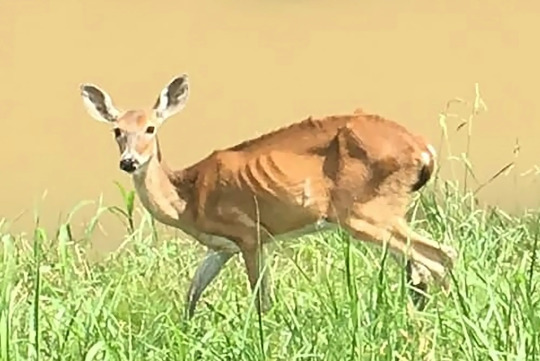
Shortcomings of Non-Vegan Philosophies
Hunters and anglers don’t have all fail-proof ideas either. When it comes to conservation, America tends to prioritize animals useful for human consumption - as in, harvesting or observing. “Game” animals, like deer, elk, grouse, and waterfowl, have most of the public’s attention and protection. “Non” game animals like reptiles, amphibians, and invertebrates, are overlooked and at greatest risk for extinction due to lack of funding.
Americans in general, eat too much meat. A quick Google search pulled up multiple articles that said the same thing. These articles are not pushing vegan/vegetarian philosophies, they are approaching the problem from a healthy diet standard. This article from Popular Science covers the American heritage around meat and animals that dates back to colonial times. In medieval Europe, many of the large game animals like stag and bison were gone due to overhunting, and the remaining wild lands were reversed for nobility sport hunting. Important predators like wolves and bear were also removed due to fears and superstition, so, the ecosystems of Europe were...a mess. When settlers came to America, they discovered a land of bounty, and developed a ‘take whatever you want’ philosophy that led to the extinction of the passenger pigeon, and near extinction of the bison and turkey. We eventually realized our mistake and worked up some protection, but still have a ways to go.

Is Veganism helping conservation?
Yes and no. It has it strong and weak points. The strongest, like I said, being pointing out the flaws of factory farms. However, the belief that replacing animal products with plant/synthetic materials will help the planet is troublesome.
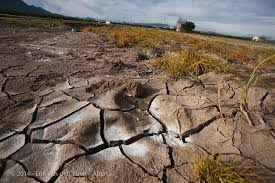
The picture is one that comes up when Googling ‘soil degradation’. The land is so dry, it is cracked. The vegetation looks dead and dying, and the soil color itself is a light sandy brown - lacking the deeper shades that indicate the presence of organic material, essential for soil organisms and plant growth. Soil degradation is a problem all around the world, appearing in various forms. It’s leading cause is poor management of agricultural fields. A vegan lifestyle means greater dependence on these farms, but there is never any mention of this problem.
Vegan or not, as an American, I believe it is in our best interest to eat less meat - not totally get rid of it, but have more balanced diets. Soil degradation is a problem for everyone. Luckily, soil scientists are at work discovering new ways to put nutrients back into the soil and lock them in, increasing the health of the soil ecosystem. The plants and animals that depend on it (including us) will be healthier, and some of these techniques can even take greenhouse gasses out of the atmosphere. The Soil Conference at Gustavo's Adolphus College brought in some of these speakers. Video are available on YouTube, and posted to my blog.

A trademark of veganism is refusing authentic leather. It is replaced by synthetic and plant based materials called ‘pleather’, ‘faux leather’ and ‘vegan leather’.
Some sites say these terms are interchangeable, but some say they’re each a little different. Leafy Souls defines ‘pleather’ as leather made from plastic. This is a big problem, because plastic materials, when washed, release micro plastics into waterways. The major problem is these plastics aren’t as easily identifiable are water bottles washed ashore on the beach. Not a lot is yet known about these pollutants, but we have found them everywhere - including inside our bodies.
Luckily, not all vegan leather products are made of plastics. Alternatives have been made from plants, leaves, cork, and even stone!
The big argument against leather and fur products is - it is cruel to kill animals just for there skins. And I actually agree with this. I was never one to buy into the fashion industry, and personally, I think it’s a little outdated, and pointless.
The process of factory made leather from cowhide is a bit disturbing. The manufacturing of leather is contributing so some major environmental issues like the release of greenhouse gasses and water pollution. Some questionable chemicals are also used to treat the leather.
The good news is livestock are not being killed solely for their skin. The cattle sent to slaughter are the same cattle that we get most commercial leather from. Of course, this doesn’t really comfort anyone heartbroken over the commercialized treatment of animals.
Leather manufacturing is also being linked to child labor and poor warehouse conditions. It’s a common American business practice to send labor production oversees to places labor is cheaper - cheaper because workers are paid less for longer hours in poor conditions. The leather industry is not alone in doing this. How we change this? Boy-coting certain products is one way, but some of these companies have monopolies on products. A book by a Michigan State University professor discusses the growing monopolization of food products.
How do we solve problems like this? I don’t know, but something this complex needs a just - as complex solution that may take years to undo.

Fur
Minnesota got its early start as a center for fur-trading between Canadian pioneers and native tribes. Unfortunely, the luxury that was fur turned the market extremely competitive. Since nature is not built for capitalism and competitive markets and commercialism, the fur bearer populations of the state took a dive. (Luckily, all have now recovered).
Fur markets were as bad as market hunting in terms of conservation, but unlike the latter, fur trapping is as persistent as ever today. Thanks to protections and regulations, trapping is able to persist at nearly the same capacity as it was in the 1800′s without threatening a population. (Also, there are significantly less people partaking in trapping).
Personally, I do not care for killing animals solely for the fur or leather. I would prefer to trap animals that also provide food - like rabbits. My believes are that if you kill an animal, you use as much as you can from it - meat, skin, and maybe even some of the bones. Its a way to pay respect by making sure the animal didn’t die for no reason.
Like leather, fur has synthetic replacements. However, I could not find as much environmental information. The main material for faux fur is acrylics, which are basically plastics that do not degrade when released into the environment. It is another source of micro plastics.
Manufactured fur, like real leather, is treated with chemicals like formaldehyde to keep from degrading. Naturally, after discovering this, I Googled health affects of wearing real fur. Problem 1: I couldn’t find a trustworthy website. The websites that came up were strongly anti-fur. I wanted to find information from a neutral website, like a college university article. Problem 2: I could not find anything. I expected to find articles about odd rashes or allergic reactions, but there was non. Instead, I re-discovered an article I used in a previous post about vaccines. Vaccines actually use doses of formaldehyde in them. It’s a scary substance, because we automatically think about it in the process of embalming bodies, but the truth is, it has many practical uses that are safe to human health. Any substance can be harmful or helpful, it all depends on the dosage and chemical makeup. I was reminded that formaldehyde isn’t as scary as everyone makes it out to be. It is actually naturally produced in our bodies, and it probably doesn’t have any adverse effects to being added on our clothes.
Another problem arises when questioning the affects of formaldehyde in the environment. When we wash our clothes, dirt and chemicals end up in our water systems, including micro plastics and formaldehyde. The usual dosages of the chemical is to small to cause us individuals adverse health affects, but the story can change when dumped in large qualities. Our tendency to dump large amounts of waste into confined areas is not natural - animals tend to discharge (biodegradable) waste evenly across a habitat, or at least in quantities than can be broken down. The way humans discard waste in large quantities means that basically anything - including caffeine from our coffee consumption - can have adverse environmental effects. So, the problem of releasing formaldehyde is not on the chemical itself, but more on our system of waste treatment and pollution in general.
Conclusion

I am overwhelmingly tired of the vegan vs non-vegan argument. The more I see people pointing their fingers at each other, the less I want to partake in either one of their ideologies. Great minds think alike but fools seldom differ.
I believe it all comes down to balance. No matter how we exploit resources, there is going to be a downside. Vegan or non-vegan, there is an up and down to every choice. We have to work together and find a middle ground.
If we completely stopped using animals today, there would be changes. CO2 emissions would drop a little, but they may change sources. The same amount of people would need the same amount of food, and 1/3 of that food would come from a different source. There may be more habitat loss from increases agriculture farms, and come communities may became protein-deficient.
If the opposite were to happen, and we increases animal products, there would also be adverse effects. To feed those animals would also require more agricultural land. Factory emissions could rise, along with health effects of too much red meat, like increased cholesterol.
The fact of the matter is, we all kill animals, directly and indirectly, simply by taking up space. The things that make you you - the proteins and carbons and lipids and nutrients - came from another organism. The fact that you have them now means something else is denied them. The cars we drive, the fields we plow, the pollutants we throw out, those are all killing animals as I type this. It sucks. I absolutely hate it. It has happened for the past millions of years, but right now, we are doing it at a faster rate than anything before us.
I cannot fully support veganism in regards to animal ethics, due to the tendency of anthropomorphization and biological misinformation. But I due support the legitimate environmental concerns, and I think a lot more people need to understand them as well.
1 note
·
View note
Text
arduinna-jade
replied to your post
“y...you eat mealworms. ?”
Why can’t we just eat lentils and beans
ok so this is actually an EXTREMELY good question and I hope you don’t mind me rambling on for a bit! Why not rely on plant protein entirely? Like, animal agriculture as we know it is terrible, right? It’s shit for the environment, it’s shit for the animals, and it wastes so much water and land and puts so many horrible things into the groundwater (do not google “hog lagoon,” please for your own sake do not do that).
The problem comes from the fact that modern plant-based agriculture ALSO SUCKS! It sucks for the environment, it sucks for the plants (monoculture is death), and it really sucks for the laborers. The fact that big companies can go after small farmers and essentially sue them into suicide is atrocious and one of the greatest failings of late-stage capitalism. But this has been going on a lot longer than we think. Unethical agriculture (both plant and animal) is a historical truth as well; early mass production methods were actually a driving impetus behind chattel slavery in the USA.
So, thinking about that, how do we make food more ethical for humans and for the world around us? Lots of people smarter than me think about this (if this is something you’re interested in, Sarah Taber has this fantastic podcast, Farm to Taber, that’s totally worth listening to), but generally speaking, it’s a dangerous trap to think that a vegan diet or vegetarian diet is ethical based only on environmental impact.
There’s lots of other ethical reasons some people prefer veganism, but if you’re looking at environmental or labor impact, the whole factory system is super, super bad. One thing that I really like about insect farming, however, is that it... can’t... really be done factory style. Compared to other types of farming, it causes very minimal harm to the people in the industry, largely because it actually requires very little human labor. There’s no carcinogenic pesticides, and no backbreaking livestock labor. It doesn’t require migrant work like say, tomatoes in California. It doesn’t provide as many jobs, but it’s a super cheap source of protein that you can raise even if you don’t have space for a garden.
It’s not for everyone, though. I’m not saying we should all just eat bugs! There isn’t one ideal human diet, and it’s a dangerous trap to think there is. Honestly one of the hardest things about existing, at least for me, is knowing that there is no ethical consumption under late stage capitalism. Everything has downsides. So when you make food choices, you have to balance your ideas of what causes the least harm, what you can afford, what you like, and what your body needs. These are not always easy decisions!
So. Why can’t we just eat lentils and beans? Some of us certainly can. But even if we all switched to a plant based diet, that wouldn’t fix our environmental problems. We need to fix the idea of an industrialized diet in general, and I think incorporating insect protein into my diet and talking about why I do it and just getting the idea out there is a possible way forwards.
We’re in a major environmental decline. At some point in the near future, we are going to have a global food crisis. Climate change and rising grain prices have already been linked to political unrest; bread prices fueled the Arab spring back in 2011. If our collective governments can’t get their shit together (they won’t) and corporations don’t stop murdering the planet for profit (they also won’t), it’s extremely likely that climate change is going to make farming both plants and animals even more difficult, and rising food prices are going to affect a lot of people in really strong negative ways.
But, you know what’s really good at surviving heat waves, doesn’t need a lot of water, produces fertilizer that doesn’t need to be packed into an anaerobic lagoon that can overflow and poison people, and is packed with protein and vital nutrients?

Eat up, kittens. They’re slimy, but satisfying.
196 notes
·
View notes
Text
Dear Mom and Dad
I thought it would be best to explain my thoughts and emotions to you both, as you feel uncomfortable with me at home, and sometimes I feel uncomfortable living at home. As a general blanket statement, I want you both to know that my change in the past year has nothing to do with how I was raised, the values and morals I was taught, and it is not a “rebellious” act to show how against my past way of life was. I also want to mention that I am still your daughter and your baby. Nothing about my personality, my hobbies (I still read, play video games, listen to music, and go to hockey games, golf, watch football on Sundays) has changed. While those things haven’t changed, my awareness of our developing and changing world around is. This note is going to explain my newly found knowledge, beliefs, and reasons as to why I have made changes in my life. These changes are meant to be for me, but also for other people to witness and possibly make the change on their own.
One more thing- this note is simply an explanation to hopefully ease your mind or insecurities or worries about me, you, and our relationship. I’m not writing this to influence you. While our values may be different, that’s okay. I still love you.
Reason Number 1: My health
The first thoughts I had about going vegan had to do with my health. Weight has always felt like a roadblock for me, as well as my stomach problems and eczema. Based off videos that are backed with scientific research (mostly Mic the Vegan) and some “I tried veganism for 30 days” videos, I decided to try it out - and when I started I only wanted to do it for a month. I didn’t plan on it sparking something inside of me so violently. To this day, I still discover more research and studies that show the positive impact that a plant-based diet has on cardiovascular health, weight management, and autoimmune disorders. So why would I want to go back to those problems when I am feeling healthy and happy eating my fruits, veggies, legumes, and grains? (Hint: I’m not planning on going back).
Reason Number 2: Ethics/Morals
While the idea was sparked because of health benefits, the act was put into full effect after watching a documentary on Netflix called “Cowspiracy” - and then later “Land of Hope and Glory” and “Earthlings”. These documentaries sent through me a whirlwind of emotions from sadness, to anger, worry, and motivation. Animal Agriculture is the leading cause of deforestation in the Amazon rainforest. “Humane” slaughter just means stunning an animal before they’re killed. Pigs are suffocated in gas chambers, sometimes three at a time. It killed me inside to see animals, who want to live (and should live up to 10-15 years), but are being killed at 2 years or younger. Again, this is just what pushed me over the edge, not at attempt to convince or change you. (Not written to them, but it would be NICE if this convinced them..) How could you have known and why would you have thought this is something I should know? You shouldn’t have - no one knows, and that’s why I’m not blaming you. Last, but not least, and what most people don’t see as important, is the question of morality in terms of milk and eggs. It can go straight back to the health discussion, but also the idea of not using animals natural produce as a commodity. They are being and they should be respected, too.
Reason 3: (My growing passion) The environment.
A quote from Climate Nexus: “Animal agriculture is the second largest contributor to human-made greenhouse gas emissions after fossil fuels and is a leading cause of deforestation, water and air pollution, and biodiversity loss.” You don’t have to look to South America to see the impacts - Newark doesn’t have potable water. Climate change has already caused displacement of homes in places like Alaska. It is estimated that climate change could displace more than 140 million people before 2050. I’m saying these things not to scare you, but to share my knowledge and to explain why I have an urgency about my new habits and ideas. All I want is to help the world in my own individual way - and if I could help change these predictions in any way, I want to. It’s not just the planet I want to save, it’s the people.
So I don’t want you to think that I’m placing more value on this than anything. I still value my family, and our relationships, more than anything. But I also want to be able to value these things the same way in a few years.
I found something I am passionate about. I feel accomplished when I can go to the farmer’s market and have no plastic packaging, or cook a nice vegan meal and have it taste great. But all these emotions, thoughts, and actions are because I gained the knowledge for myself.
I’ve been trying hard to keep to myself when it comes to these changes, but I can’t help but try to explain myself or defend my actions when you guys make comments. I’m not expecting you to make huge changes; heck - I’m not expecting that from anyone at the moment. But the least I can do is reduce my own carbon footprint with the hopes of a cleaner (and existing) world. All I want is for you guys to be okay with that.
I love you.
Rae
#dear mom and dad#veganism#activism#explanations#how to tell your parents#how to explain to your parents your vegan#vegan lifestyle#environmentalist#save the planet#save the earth#save the animals#save the reef#save the bees#save the ocean
23 notes
·
View notes
Text
The conscious experience
Am I conscious? And if I am conscious, then how do I prove that I am conscious, by making use of the conscious experience itself?
That’s actually a very interesting conversation. It’s certainly not an original thought.
The way I think about thinking, this sort of logic flows from the same set of schema, that governs my thinking regarding life.
And so, if I may begin by first articulating, what I personally don’t consider to be true. In fact, I think that the below mentioned have a high degree of being classified as the opposite of true. And I’d attach a higher than 80% probability to such claims.
There is no super deity: In a probabilistic sense, there may very well be intelligences out there that could be classified as vastly superior, compared to the level of intelligence that we exhibit (in our existing evolutionary state). I say this, considering the enormity of the universe and the possibility that there may be many multi-verses and a lot of dimensions out there. But the conscious experience, it appears, is born out of a number of different processes that can be categorized as non-conscious. So, it just doesn’t make rational sense as to why a super deity would want to micro manage the affairs and as it relates to an enormous amount of conscious agents out there. That being said, it’s interesting to think about the spectrum and how intelligences of varying types and scales could potentially co-exist on similar/the same planar. And on the other end of the spectrum, we are dealing with the very low end of the probability that humans are the only intelligent beings in the entire universe. If that statement ought to be considered as true, then that increases the probability that we are either living in a simulation, or that all other intelligent beings have left this universe. Or that advanced beings either live in the cauchy horizon or that their patterns are retained there. Or some other reason that could reasonably explain this oddity. Overall, it’s an interesting question and with respect to what came before the big bang. Or why something even has to be there before the big bang occurred. I think that these are both logical questions. I’d even go as to state, that if there was indeed a God like intelligence, then it certainly does not intervene and as it relates to the day to day affairs of intelligent beings, or non-intelligent beings at that. That super-intelligence is either doing it’s own thing, in it’s own corner, somewhere in the multi-verse or it ended up annihilating itself. So, that is my current stance on this sub-topic. That there is no super-intelligence in an interventionist sense.
And so, there are no angels, demons. There is no concept of heaven or hell.
There is no soul. At least there is no evidence that such a thing exists.
And so, there is no consciousness. In either the esoteric sense that it is characterized in a variety of different ways. Intertwined with the fabric of space-time. Allegedly flowing in and out of microtubules.
If there is no consciousness, then what is it that we experience? We experience something. Even though what we experience could be classified as a series of hallucinations brought about by the signals flowing through our brains.
Over the course of the human evolution, we have devised mechanisms that help us towards understanding our reality and our place within this reality. Maybe there are better mechanisms out there that we have yet to invent.
And so, in order to be able to define the conscious experience, we need to be grounded in truth and there has to be evidence that certain phenomenon drive certain outcomes.
Next, I think it’s better to classify what we experience as cognition. Cognition is driven by electrical and chemical activity in our brains and the mental aspect (related to the mind) is largely fashioned by our interaction with our wider environment.
Going back to the question that I started with and given the background that I have shared, cognition, it appears, is simply an interesting mixture of pattern recognizing functions.
I think that we can use simple examples in order to be able to separate the signal from the noise. Meaning, that:
We need need a discussion and as it relates to what certain words really mean or the meaning we attach to these words.
And this is important because we want to use mechanisms in order to replicate or seek to replicate how we think cognition functions. When it turns out that the processes we engineer may end up working differently, compared to how evolution has powered cognition.
Also, I think that using simpler examples is a better approach, as doing so helps in refining our understanding, with respect to the models that we will architect.
For example, Michio Kaku’s definition that a thermometer has a cognition (he calls it consciousness) of 1 (or 2, or +/- x e.t.c depending on how you look at it). Meaning, in response to the stimuli that the system gets from it’s environment, it either goes up or it goes down.
How we classify the scale from a thermometer to viruses/bacteria, to potato bugs, to chickens, to other animals and finally to ourselves. That is a conversation by itself. I think that, that is primarily a question of ethics. Care is to be meted and we shouldn’t let our unconscious urges and desires lead us towards categorizing the conscious experience as something that is convenient for us. And then, this classification turns it into something that could be very uncomfortable for the village idiot.
As it is, our classification of cognition isn’t something that is to the advantage of chickens and other animals that we have domesticated. Note: I’ve started eating chicken again and I feel a slight tinge of guilt when I bite into the flesh. But, then, in my mind, I start equating chickens to dinosaurs and somehow I am able to justify my behaviour. But, I haven’t had red meat in a while.
For the record, if I was raising my own chickens, then I could probably condition myself to slaughter them in a humane and ethical way and then cook and eat them. But, if it happens that we encounter some slightly advanced alien species, that kind of look like a more evolved progenitor of the avian sub-species that we find on this planet. Then, my mind is going to start thinking how these advanced beings would perceive me, when they see me biting into flesh that looks like something that emerged from these alien types.
Considering the panspermia theory, that hypothesis isn’t really as wild or improbable. As improbable as it may seem, these questions would certainly start emerging in my mind, if I were to encounter a technologically advanced blue avian. In such a scenario and just to be on the side of caution, I think I’d probably stop eating birds at that point in time. Because, you do not want to unintentionally piss off your technologically advanced inter-stellar neighbours.
Overall, these problems disappear or start disappearing, as soon as cellular agriculture starts going more mainstream.
Next, I certainly don’t think embryos are alive and have a soul in them. There is neuronal activity in there. Off-course there is. Because nutrients have to be delivered to the different parts of the system. If you are going to pinch the embryo with a needle, then there is going to be an instinctive reaction that has been programmed via evolution. Knee-jerk reaction. An embryo is not alive.
I must state that the reason why I am sharing some of these thoughts is because I really hope that as humans we should use our cognitive surplus, in order to be able to learn more about how our brains function.
Also, I don’t say, or think out loud what I am sharing, with the explicit purpose of offending someone. Although, I really do not think that society ought to be structured in such a way that me saying something offends someone and that is not allowed. That’s a big problem.
Specially, with me (or anyone else at that) saying something is not inciting violence in any shape or form. An embryo is not a person and it’s not conscious. I mean, I eat eggs everyday.
Now, I have started thinking about how painful this must be for the chickens to lay billions of eggs each day. As well, the male hen, whose sperm is being used to fertilize these hens in the first place. So there are all of these thoughts. But, for now, I am still eating eggs, chicken and fish and not so much of red meat.
I guess, overall, problems emerge, because there are memes engrained in cultural settings. And there is group identify. And it’s easier to go along with the group vs forcing oneself to think independent thoughts. So if the the majority of the group believes that am embryo is conscious, then it’s not so easy going against that way of thinking. Unless, one chooses not to associate with that group, which isn’t necessarily an easy thing to do.
Coming back to breakthroughs in neuroscience. This is an area that could radically alter how we live, how we govern, and key breakthroughs could also help reduce so much human suffering on this planet.
Imagine being able to treat mental illnesses the way we treat ailments physiological of a nature. Same with addictions of different sort.
Imagine being able to truly understand someone else, when they allow you to share their emotions/sensations and their way of looking at the world with you. Even though that may occur for a short period of time.
Imagine, humans choosing to put down their weapons and deciding instead that they are going to invest towards enabling healthcare in their communities. And that all humans could make that decision at the same time. Because, we would finally have the means and the ability to be able to decode how the brain and the mind actually function.
There is a super long list of benefits that I can think of. I love thinking about thinking and all the amazing benefits that could be had. Two of my personal favourites include:
The ability to be able to encode knowledge in logic, so that it can be transmitted instantaneously from one system to another.
As well, if technological singularities are still lingering around in our universe (for any given reason), then the means and the abilities to be able to build the right kind of architecture, so that we can begin interacting with them (the singularities, technological singularities). Although, I would suspect that the singularities have an outer un-conscious shell which is intelligent and yet it is non-conscious. Then they have this inner dynamic that is vibrant and diverse and wholesome. Because if the universe is teeming with intelligences with different sort, then technological singularities must have devised some kind of mechanism in order to be able to retain and exercise their uniqueness. The alternative, increases the probability that the whole thing enables harmful mutations across these technological singularities. Like cousin marriages or the whole thing turning into a giant b0rg. And so, if everyone is thinking the same way in the b0rg, then is the b0rg really thinking? Is the borg really that much more conscious than slime mould?
Overall, I am still not 100% sure if I am conscious or not. I think I am more conscious on some days vs others. My experiences lead me to believe (a loaded word) that memories and how they are encoded, that this process plays a pivotal role and as it relates booting up our schema.
I believe that I am a good person and I am willing delay gratification in order to do the thing that is honest and ethical. This is a criteria (for lack of a better word that I can think of right now), that has led me to think about how I consume materials and information. Nobody is perfect. But I strive to do better. And I do make progress, because I measure most aspects of my life.
If our conscious experience has booted up, using principles and mechanisms that can be categorized as ethical and moral in a secular/universal sense. Then, in light of such a reality, our conscious experience is our property.
Now and increasingly into the future, we need to have agreements in place, with respect to who can access who’s property. Citing a clause that reality is far too complex for any one cognitive system to understand and then trampling over individual conscious experiences, is obviously not a good model.
I think it makes sense to go down to the absolute basics. Meaning, distill/boil down a narrative to the core fundamentals and build up the narrative in a logical and structured way. Because, you can then build up on these models in a way that is sustainable and replicable. The alternatives do not really offer safety/security/insurance/scalability.
So when we think about thinking, we can say that this is what we know. And here is the evidence. So let’s build on top of this, in order to help reduce unwanted and undesirable human and non-human suffering.
#conscious#cognition#thinking systems#wetware#cognitive systems#cognitive agents#thinking about thinking#suffering#brain#mind#ethics#super-intelligence#participatory universe#fermi's paradox#drake's equation#morals#morality
2 notes
·
View notes
Text
24- Miss Rose

24- Miss Rose (Diane Cilento). The Wicker Man (1973).
If you’re here for the 2006 Nicholas Cage remake of this movie, you can just leave right now.
The Wicker Man is a cult-classic cinematic masterpiece described as a British mystery horror film from 1973. The movie follows the story of a religiously devout detective who is called to the mystical island of Summerisle to investigate the disappearance and possible ritual murder of a young girl. Unbeknownst to him, the islanders themselves manipulated him into coming to the island to partake in their own devoutly-held religious activities. Summerisle appears to be a final hold out of indigenous pagan practices, nature worship, and common local folklore that existed throughout the British Isles.
Over the course of the movie we see, better than any other interpretation I can think of, a relatively accurate illustration of a society with an integrated Pagan ethic. It is deeply engrained in the lives and minds of the population, from the schoolhouse to the once-hallowed church yard. Throughout the movie it is revealed that the island returned to these ancient practices only a few generations ago in an effort made by the past Lords of the island to help coerce the general population into continuing their agricultural sustenance—as in— the political power on the island used pagan motifs to keep the populace producing much needed exports that would keep the island alive.
There is a lot going on in this movie. We have Christopher Lee in ritual drag, raunchy sex going on in the cemetery, a lot of nudity, and a soundtrack that mirrors and incorporates religious beliefs and motifs through lyrics and verse. It really is unlike any other movie on this subject and, besides the unfortunate ending and overarching theme of human sacrifice, it does manage to convey some great insight into pagan philosophy and practices from the British Isles.***
For the sake of this project, I’ve chosen to highlight the character Miss Rose, played by Diane Cilento. Miss Rose first appears to us as the school teacher, instructing the young children of Summerisle in their magical correspondences and traditional May Day/Beltane lore. I’m sure the audience had mixed feelings when a classroom of young girls responded to Miss Rose’s question about what the May Pole represents with an unabashed “phallic symbol!” in unison, but I personally found it to be very progressive early sex education.
As the movie continues, it becomes clear that Miss Rose isn’t just a teacher for the young children. She’s also a kind of High Priestess of Summerisle (one of three) and further instructs young women in the art and tradition of a kind of pagan witchcraft. The rituals we see in the movie, particularly the fertility rite in which naked women are jumping over the fire to become imbued with divine energy, is highly reminiscent of some Alexandrian Wiccan rituals. Miss Rose, in many ways, reminds me of Maxine Sanders (#74) throughout this movie. It is said that the actress Diane Cilento herself jumped across the flames, allegedly identifying as a white witch at the time of filming.
Miss Rose serves as a foil to the arrogant detective throughout the movie. Where he is cold and heartless, she is kind and giving. Where he is rude and offensive, she is informative and strong with conviction. He represents the modern Christian mentality, always looking to drive out the witch in the countryside. She is the witch in the countryside, but has no fear of weaker men (or wicker men, for that matter). Miss Rose illustrates the primary leadership role women naturally have in Paganism and witchcraft, as both Summerisle’s lead educator and priestess.
Miss Rose is an adamant follower of her faith. She genuinely believes in its religious and ritual efficacy, and teaches the tradition to the next generation so as to continue its legacy. The version of Paganism that we see on Summerisle beautifully captures its seasonality, nature orientation, and the philosophy that human beings are creatures that fundamentally exist within nature, not above it. Through characters like Miss Rose, we see the full possibility of a society guided by nature-worship and magic. It truly is a beautiful thing, and the movie itself has become somewhat of a Pagan anthem/ occult-cult-classic. Apparently the movie is considered a horror, but I’ve always had a sense of perverse satisfaction from the story.
***Any mention of this movie when discussing actual Paganism or witchcraft would do itself a disservice if it didn’t address the Wicker Man/elephant in the room. The entire plot, and culminating scene, of the movie does involve human and animal sacrifice. The residents of Summerisle put the naive and arrogant detective, along with a hoard of livestock, into a human-shaped pyre called a Wicker Man. Historically, these were effigies allegedly built by the ancient Celts and Druids to be burned for religious sacrifice. There seems to be no consensus among historians as to whether or not the Druids and Celts actually performed human sacrifice, the belief being that the Romans and Greeks who made early contact with these cultures superimposed the outlandish rituals. The archeological record is inconclusive here, however, although more recently there does seem to be some evidence pointing to ritual sacrifice.
Modern pagans have largely re-embraced the wicker man for various holiday observances, of course without the human and animal sacrifice. Wicker men have been used as ritual effigies across Europe for centuries, and the practice continues to this day at events such as Burning Man. The possible historical past of Paganism and its association with human sacrifice is unforgivable, however it bares no hold on modern Pagan revivals. Contemporary groups have distanced themselves time and time again from ritual human and animal sacrifice, as the religious philosophy of most Pagan traditions celebrates all forms of life, promoting environmentalism, vegetarianism, and humanism.
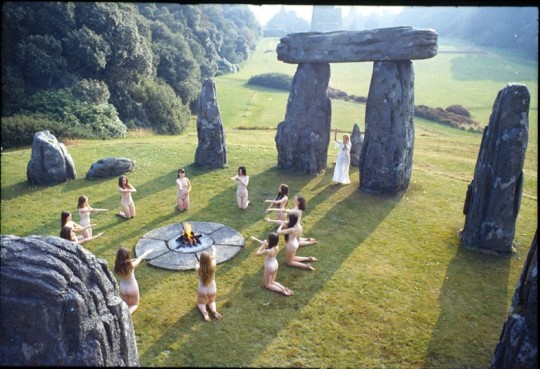








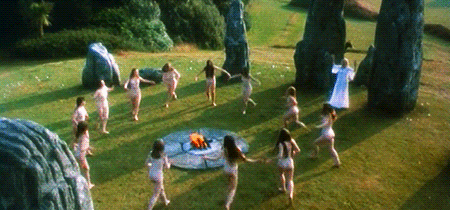
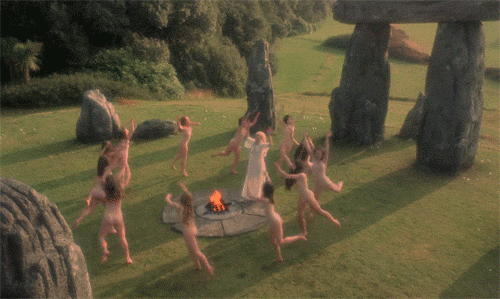
#witch#witches#witchblr#witchcraft#100witches#halloween#samhain#pagan#paganism#wicca#coven#magic#occult#the wicker man#christopher lee#miss rose#diane cilento#wicker man#1973
589 notes
·
View notes
Text

Activist expressing. Okay, sounds broody and a little self-interested, but expressing what?
As a vegan activist, I am confined to a self-imposed box, a restrictive corner of society whereby only a fringe segment of global populations currently agree with my way of living, a slightly larger segment view the vegan perspective as reasonable, and the rest won't acknowledge that an alternative view to the seemingly smooth-sailing status quo even exists. As a species, we dwell in our own correctness, and rarely do we take the time to correctly analyse our views from the ground up, to truly evaluate our own bias outside of seeking further confirmation of long held preconceptions.
I am no better, there are undoubtedly aspects of life where I am wrong, and I will likely continue to be wrong, however there is one part of the life experience saga of Dale whereby I am proud to have overcome a preconception which was instilled and reinforced in my cognition roughly 341000 times. Three times a day, 7 days a week, for 18 years, I was conditioned into the mindset of carnism.
'Carnism is the invisible belief system, or ideology, that conditions people to eat certain animals. Carnism is essentially the opposite of veganism, as “carn” means “flesh” or “of the flesh” and “ism” refers to a belief system'
Carnism is the learned behaviour of eating animal products. It is not a noticeable part of the average human experience to those that are unaware of it, just as religion, to children that know only of religious society and have never experienced any alternative would be unconscious to the possibility that any alternative could exist. Only once we become aware of conditioning can we begin to deprogram.
Carnism is self-perpetuating; under the influence of carnism, we will go to great lengths to crush any alternative perspective to our preconception. We will often declare our morality to be completely different to our actual beliefs. To defend carnism, we may state that plant life is just as important as the life of a conscious, sentient animal, we may claim that we are apex predators with ravenous carnivorous instincts, we may claim that morality is entirely subjective, and that nobody is within the realms of moral judgement because morals are self-defined by personal creed.
None of these are true, many are empirically, demonstrably untrue, and not one is a sincerely held belief. Never would we morally compare inanimate plant life to living, seeing, thinking, feeling, experiencing, perceiving, interpreting, questioning, sentient beings, apart from when faced with a vegan. Never would we claim to share any physical traits, or to have a shared morality with wild lions, enthralled in the midst of the Darwinian battlefield that is nature and survival, except when confronted with the presence of a vegan. Never would we claim that society is amoral or unjudging, or claim a child murderer, a sex trafficker, or an animal abuser to be beyond the bounds of moral judgement until we are jolted into the uncomfortable, relentless self-awareness of someone who takes an ethical stand against practices in which we willingly, and joyfully participate.
Our psychology is wired to prioritise the confirmation of our own beliefs over hunting the actual truth. Truth is not subjective, nor is it personalised to each of us. Truth is complex, it encapsulates us all and we interpret it in our own ways to varying levels of accuracy, but the truth is iron-clad, unmoving, and absolute.
The truth of carnism is that it is flawed, dangerous, and corrupt. The truth is that humans- as detailed by the American Dietetic Association- do not need animal products to survive and thrive. The truth is that animal agriculture as an industry, is one of the largest known contributors to the obliteration of our planet's welfare and future prospects. The truth is that carnism is a belief system which does the work of the animal agricultural industry for them, market specialists release ads confirming our own biases with minimal effort or evidence, we shun opposition to the marketing, we commit the marketing to memory in case we need to deflect vegan objections to the marketing, culture and tradition reinforces the perspective that marketing gives us which is that 'we consume animal products, there will be no questions'.
Veganism, the counter to carnism, is the perspective which begs a simple question:
If we know that we are able to live out our entire lives, as healthy, happy, fulfilled individuals, without causing intentional harm, and whilst causing minimal unintentional harm to the creatures that coinhabit this planet alongside us, then how can we continue to morally justify the commodification, exploitation, systematic abuse and massacre of our planetary neighbours?
How do we still continue to consider ourselves a civilised and rational society when we behave in a way which, when evaluated objectively, given the unnecessity of our doing so, is unquestionably barbaric, and is literally designed to cause harm to other creatures at the most colossal and proficient rate possible?
My subscription to a vegan belief system puts me in a currently limited segment of the population, confining me as 'off limits' in the public discussion to large swaths of humanity, however I am not alone.
This blog is a diary of my experiences fighting for change, rebelling against carnism within, and to an extent without of the law.
#vegan#veganism#carnism#vegan activism#activism#environment#environmental activism#the save movement#anonymous for the voiceless#animal rebellion
1 note
·
View note
Text
gaytheiestbandkid
My last response below, because while I respect that you blocked me (though I have no clue why) the fact that you did you after making your own response that I then cant respond to via reblog is a tad iffy. And I at least feel that I should be able to post my own response anywhoo even if I cant do so directly. If not only cause I spent a heck of a time writing this “^^
“ done yet? if you have the idea that there’s a “carnist bias” in my post then you’ve got me all wrong. i wholeheartedly support taking down the animal agriculture industry.”
Well it certainly looks like you don't support the abolishment of the animal ag industry since you pay for it when its possible and practicable to avoid doing so. You literally called the social justice movement dedicated to taking down this industry along with every other form of animal exploitation a “cult” and you make a post filled with lies and misrepresentation about animal agriculture and plant based diets. As well as promoting as supporting the needless consumption of animal flesh/secretions as a “personal choice tho”. If that isn't bias then water isn't wet.
“ by means that actually work rather than putting a band-aid on a gushing arterial wound, by means that people can get on board with rather than moral absolutism.”
Any solution which doesn't include the avoidance of all forms of animal exploitation as far as possible an practicable as the very least that people with moral agency have a moral obligation to do. Any solution which spreads lies an misinformation about the form of injustice attempting to be abolished, any solution which places sole blame on capitalism, which absolutely doesn't work with animal exploitation since is would exists in any system. Is not a solution in any sense of the word.
By your logic its fine to support/inflict violence against women because having the basic requirement that people shouldn't inflict violence/exploitation absent others as individuals is just a “band aid” for a gushing would in any social justice movement. Instead of holding said people who claim to oppose said injustice while inflicting it accountable as adult in control of their own actions. And yes being opposed to people needlessly exploiting, abusing/torturing and murdering other sentient beings of another species for their own personal pleasure is intrinsically an issue of rights and wrongs. Just like its an issue of rights and wrongs when victims are humans because all victims are sentient. If saying needless violence, exploitation and murder is wrong is moral absolutism. Then I would hope that the vast majority of people would happily sign up to stand on that hill.
“ and your response to the “buying local” point is clearly emotion-based and disingenuous. the point was clearly about environmental impact, yet you made it about the poow suffewing animaws”
Fist of all, you simply said “the only way to truly have a low-impact diet “ So you could have been talking about either the ethical or environmental impact. Secondly, you seemed to have missed the whole of the part before I talked about the ethics (which is the most important issue, and its simply disgusting that you would joke around about that. Yes they are suffering and people like yourself are responsible) And I will link to the section where I explained why your “buy local” for the environment argument is wrong.
So locality means very little when it comes the the environmental impact of a food, with transport costs being just one small fraction of the overall footprint of a food item as It has been demonstrated that an average of 83% of a food product’s carbon footprint is caused during production. And transportation accounts for only 11% of the product’s greenhouse gas emissions. This means that choosing a plant-based option will always have a far lower impact than even the flesh of locally raised, exploited, abused/tortured and murdered animals, even when it is imported from abroad. Simply put, the idea that “buying local” in in any way comparable to (let alone better than) doing your best to avoid supporting the injustice that is animal agriculture as a consumer when it comes to either envionemtat impact is simply not based on facts.
“i don’t remember saying people should go out of their way to buy meat locally? only that they should buy locally in general if they claim to be making near-zero impact”
I mean in a post dedicated to spreading falsehoods about animal agriculture, I think its pretty safe to assume that you were trying to claim that a diet than including animal flesh/secretions that is entirely locally brought has a lower impact on the environment than a plant based diet which isn't fully local. Which isn't true. I’m happy to be corrected though, if you weren't saying that, and you recognise that even a fully local diet that includes animal flesh/secretions has a much bigger impact than a non local plant based diet.
“ by holding those in power rather than the everyday civilian accountable for massive-scale ecological destruction (telling me the 71% statistic is about fossil fuels in no way undermines the broader point of bringing it up.”
Your specific claim was “100 companies are responsible for over 70% of human-linked carbon emissions; as an everyday civilian, your carbon footprint is very nearly zero compared to that of big corporations, which are the real problem to begin with” This is a complete misunderstanding of the study and absolutely undermines the broader argument that you were trying to make. Since it in no way supports that argument. The study shows that 100 companies produced 71% of the fossil fuels which are then used by other industries and by consumers via their individual actions. 100 companies aren’t causing 71% of emissions, they’re producing 71% of fossil fuels. Those are completely different things. Completely different. Heck, the animal flesh industry (the industry exploded in this study) is responsible for as many GHG emissions as 70 of these companies combined. An industry which is exists entirely due to supply and demand. Individuals carbon footprints are included to make up both those 71% of fossil fuels as well as the GHG emissions from the animal flesh industry, let alone other animal ag/animal exploitation industries.
“ your pound-for-pound examination of food costs is yet another poorly-thought-out point without any nuance. 1) the low pound-for-pound costs of plant based foods are typically attributed to bulk prices and 2) you can’t ignore calorie density. someone unemployed or living paycheck to paycheck can feed themselves for longer on a $5 bag of chicken nuggets than on a bulk purchase of plant-based foods, many of which will go bad within the same time frame anyways.“
Again, this isn't true. I wasn't talking about pound just as in weight, I was talking about pound as in money. So say an average daily intake of 2500 calories is generally the cheapest when it comes to pounds (as in £) worldwide compared to the same amount of calories on a diet that included animal flesh and secretions. Which is one reason why the poorest population subsist on primarily plant based diets. This is because the cheapest items are the staple items such as the rice, pasta, potatoes, beans and lentils, tinned veg/fruit, oats, etc. All of which are staple items which are included in the diet of those who consume animal flesh anyway. For example, people can feed themselves for longer on pasta and tomato sauce, or rice and beans, than a bag of breaded chicken flesh. And the bag of breaded chicken flesh will go of sooner than the former foods. with the former being full meals as opposed to breaded chicken flesh which you would eat with something else.
Sure, bulk buying is a great way to shop if you can, but even if you aren't talking about bulk buying, a plant based diet is still the cheapest worldwide. As I explained in my original response. Not surprising then that double the percent of vegans are in the lowest come bracket compared to middle and higher incomes.
And your original claim was that many people cannot go plant based (or vegan) because vegan products are more expensive than their non vegan counterparts. Never mind that fact that you don't have to eat plant based meats, cheeses, ice cream etc.. of a plant based diet.
But lets use these plant based alternatives to compare to their non vegan counterparts for a sec:
~ At Asda you can buy 8 plant based burgers from their own brand frozen range much cheaper than Asda’s own brand frozen animal flesh burgers. 1.75p for 8 plant based burgers vs 2.00p for only 4 animal flesh burgers. And this is the same for pretty much every UK Food store brand.
~ Let’s look at cheese and look at its costs at Tesco, another popular supermarket. A 200g block of own brand Tesco cheese is exactly the same price as 200g of vegan cheese being sold.
Of course if you include these plant based products it will be more expensive than sticking to the staples, your diet will probably be closer to that of someone who doesn't eat a plant based diet. But if you stick to the staples then yes, its absolutely cheaper. And I did link to lot of sources of more information which it looks like you didn't check out unfortunately.
!i’m hesitant to bring up this point because it really does get misused by non-vegans a lot, but the industries for plant-based foods aren’t the pinnacle of morality. many plant food industries– including those that vegans partake in far more than non-vegans, subject workers in developing areas to literal slave labor in downright horrible conditions.”
Can you tell me which specific industries vegans take part in more than non vegans which are ethically worse than the non vegan equivalent? Keeping in mind both that no vegan claims to be 100% cruelty free as a consumer, and that the diet of a non vegan includes far more plant crops (and therefore more crop labour/worker exploitation) than a vegans does. Nobody is saying that being vegan is the most you can do, its literally the least you can and should do. Its the baseline, the starting line, the very basic requirements for anyone who claims to have consideration for others. And really, I don't see what this has to do with any of the falsehoods made in the OP? It’s is a pretty big deflection it seems from any of the claims made in the OP.
“ there is no ethical consumption under capitalism. getting hung up on the specifics of what kinds of consumption are/aren’t ethical implies that absolutely everything we eat or use or otherwise consume is a product of exploitation, misses the point, and designates the public as the public enemy rather than the ones running the system.”
Are you trying to use the statement “there's no ethical consumption under capitalism” to justify the individual actions of consumers place all of the blame on capitalism? Because that is completely bananas.
There is no ethical consumption under capitalism.
This fab article by WorkingClass Vegan
A great post on this very site by @mickibuddy here
Quick edit: @mohs-hardness-scale I saw you reblogged my response with a response of you own, though I can only see the first part of your reply that says “its not my job to provide you with sources. Google exists” since your friend blocked me and deleted almost all notes on their post. I wonder why. But please feel free to repeat your response via reblog of this post So I can have the common curtesy of being able to respond. Or if you don't want a public dialogue my ask box is always open.
28 notes
·
View notes
Note
What do you think of TMFCK defending dancing horses so much? Like obviously he’s not advocating for it but defending tying up and whipping/beating a horse in the name of tradition and cultural sensitivity fucks me up. Clinton Anderson relies on abusing horses to pay his bills, and everyone thinks that’s fucked up. so why is it suddenly okay for people in other countries to do that?
I’ll straight up admit that I don’t see the majority of his content and also can’t be bothered to go look at it to confirm what I’m about to say and this is going to be based off the what I saw in his arguments the last time him & dancing horses actually popped up on my dash:It’s sort of like watching someone try to explain the fact that if a black hole ever crashed into the Earth, the Earth would be fine but there would be an exit and entry point (like a bullet wound) but not quite Get It™. (The hyperlink/bad analogy is literally a cool thing I learned about that was NOT caused by a black hole crashing into the Earth but which caused me to learn what that might do theoretically and I wanted to share that).
So here’s the thing--- he’s not wrong about having to look at it in a cultural context. If you’re trying to look at it from an academically minded viewpoint and learn what their rationales for training in that manner is then you absolutely need to get rid of any biases and ethnocentric views. You’d need to learn it from the view of the people doing it. If you’re trying to look at why they’re doing it that way versus why they’ve not adopted another way, then you also have to look from a culturally mindful perspective. Especially if you’re trying to effect change and get them to adopt methods that are not abusive. You simply cannot change adverse cultural practices when coming in from the viewpoint that they’re Wrong and you’re Right (even if ethically that might be true). People shutdown when they’re being attacked, especially so if what they’re being attacked over is ingrained in their culture. Instead of being an attack on the practice, it turns into an attack on the culture. There are plenty of cultures that aren’t Bad that have Bad Practices and we can only change them through learning about them and empowering them with education to make ethical decisions.
A great example of how to effect ethical change in a culture whose traditional practices are abusive practices is the Friends of Marwar/Kathiwari Horse organization and what it’s done to replace harsh, crudely constructed Indian bits with snaffles. They also work overall to educate about horse welfare and proper horse care in India, including being partnered with Flying Anvil Foundation (which focuses on bringing updated farrier techniques to the areas of the world that are still dependent on traditional farming and truly agricultural use of horses). What both organizations have in common is that they are aiming to correct very clear abusive/neglect by approaching it from the standpoint that it exists from a lack of education. They go in, they educate, and people adopt these proper care methods and non-abusive techniques/tools because ultimately these people do care about their horses--- even if they only care about maximizing the usefulness of the horse. That last bit there about the “usefulness of the horse” is also something really key to operating effectively in outreach work aimed at improving the condition of any animal that a culture is subsisting off of. You cannot change cultural views with a snap of your finger, so if you enter into a culture that only views the animal as a tool and not in the same Western concept of a companion--- then you need to implement a strategy that focuses on logos versus pathos. (Quick terminology lessons: Logos, Ethos, & Pathos are rhetoric terms that originated from Aristotle and describe the method by which you’re arguing a thesis ((thesis being used in it’s original context to mean a “point of view” or proposition)). Logos is an appeal to logic. Ethos is an appeal to ethics. Pathos is an appeal to emotion. When operating across cultural lines, you generally do not rely on ethos because what is considered ethical is not standard across cultures. You rely on logos and pathos either solely or interchangeably as necessary.)So, if you’re dealing with people who want to do what’s best for their horse because they also care for the horse as pet--- then you can focus more on pathos and use arguments like “if you use this snaffle instead of this traditional bit, it will be softer and cause your horse less pain which will make him happier and more responsive!”If you’re dealing with people who want to do what’s best for their horse only so long as it maximizes the use of the horse--- then you need to focus more on logos and use arguments like “if you use this snaffle instead of this traditional bit then you won’t cause sores and cuts in the horses mouth, and a if the horse is not in pain then it can work longer and if the horse doesn’t have open wounds then it won’t get infections in those wounds that could kill it or mean it wouldn’t be able to work; so by using this snaffle you can get more use out of your horse.”
However, where I’ve seen TMFCK go “wrong” in his arguments or defenses is that he’s not getting past looking at it from what ethnographers call an “insider’s perspective” and applying an “outsider’s perspective”. By only pointing out the the fact that the training is orally passed down and whatever else about it as a means to explain the why there is the abusive practice is only doing half the work. You need to look at the WHY (insider’s perspective) but also the HOW (outsider’s perspective)--- so let me give you my favorite example from an ethnographer about how to apply looking at it from both perspectives because it’s the most chilling:In Brazil, specifically I think it was the capital, within an extremely impoverished community there was an astronomically high infant mortality rate. Going in and studying why this was happening, an ethnographer discovered this was due to something that she translated roughly as “the breath for life”. When a child was born, the practice within the community was to take the newborn immediately after cutting the umbilical cord and places it in a corner of the room on the floor where they would leave it for something like 3 days. You would not look at the child or feed the child, or cover the child. You’d just leave a newborn crying on the floor for 3 days. Now the cultural explanation for this (WHY/insider’s perspective) was because all children born into the world are reincarnations of souls who’ve already lived. God is apparently very silly and doesn’t keep track of which soul just died very well and you need to wait the 3 days to make sure God didn’t make a mistake. The soul itself needed that much time to alert God that “hey I was just alive!” and needed isolation so that a) God could hear it better and b) to prevent the soul from losing it’s memory of it’s past life (which is what happens to babies so that they don’t have their old memories) so that God could take it back. A baby that lasted the three days was a soul that had “the breath for life” and had spent enough time in Heaven that it was ready to live another human life. So--- from the cultural perspective, they weren’t committing infanticide or doing anything wrong because that’s what was needed to help God out with his bad organizational skills. Now the actual, hard science explanation behind why this was a cultural practice and why people didn’t see anything wrong with it (HOW/outider’s perspective) was that this community was so horrifically impoverished that they could not devote resources to many children at all and couldn’t afford to waste them on infants that wouldn’t survive. The waiting the 3 days before even feeding the child was essentially a form of unintentional eugenics because the infants that would be able to survive it would have strong immune systems and clearly just a strong survival ability. The 3 days thing also mimicked a very real possibility of the children going days without being fed as that was a very real possibility in the community. These children would then be worth devoting precious resources too because it wouldn’t be a waste. Yes, this community was committing infanticide but they were committing infanticide on children that would have likely died anyway and preserving resources that would be valuable in keeping other community members alive. Is it wrong to let a baby die on purpose? Still yes, but at least there was a reasoning behind why that had become a necessary thing.The point is, you need both views of something in order to absolutely fully understand why it is happening. Only with an understanding of it can you remedy it. In the above example you could scream at them to stop leaving babies to die---maybe even get them to stop leaving babies to die, but ultimately those babies still would have died. Knowing that it was a resource problem meant that two viable options to prevent needless baby death would be 1) Give them more resources and/or 2) Introduce them to family planning so we’re only having babies we know we have resources for. Without both aspects of understanding you can’t provide a real solution.
So, I get what he’s saying and he’s not wrong and he does make good points about racism (or at least he did the last time I saw it and I actually chimed in about it too--- and actually the Clinton Anderson thing is a great example of racial bias: people will accept his abuse because it’s in the context of a white culture but condemn the dancing horse abuse because of it’s context in a middle eastern or south american culture. They’re still both abuse and they’re actually both pretty closely related in terms of abuse but it’s important to understand that abuse is abuse even if a white guy is doing it and if you’re only calling it out when NOT a white guy is doing it then you’re not doing it because you care about horse welfare, you’re doing it because you’re racist) BUT at the same time he’s not going far enough in deciphering and breaking down what he’s sharing.
He needs to be able to quantify the abuse without qualifying it.
#dancing horses#hey did you kids want a lesson in ethics and anthropology and how to effect ethical changes in foreign cultures?#too bad that's what you got#Anonymous
18 notes
·
View notes
Text
Blog 1: The Balance of Suffering and Joy
In “Consider the Lobster” by David Foster Wallace, the Maine Lobster Festival is used as a case study for the question of morality when it comes to eating lobster, and animals entirely. His main points in this article are that the current understanding of cooking lobsters is flawed and that there is a distinction between suffering and pain, neither of which we want to think of the animals we eat experiencing. He reaches these conclusions through a clearing of the facade presented to consumers about lobsters and questions the Festival's insistence that lobsters do not experience pain. The Festival argues that “the nervous system of a lobster is very simple, and is, in fact, most similar to the nervous system of a grasshopper. It is decentralized with no brain. There is no cerebral cortex, which in humans is the area of the brain that gives the experience of pain” (Gourmet, 61). Wallace disproves this argument by drawing on scientific evidence and further expands upon pain and suffering distinguishing “between (1) pain as a purely neurological event, and (2) actual suffering, which seems crucially to involve an emotional component, an awareness of pain as unpleasant, as something to fear/dislike/want to avoid” (Gourmet, 63). The reason Wallace suggests eating lobster is wrong is because he is operating with the assumption that causing pain and suffering is wrong, which supports Peter Singer's argument as well.

Wallace also analyzes the various ways to kill a lobster and the inconclusive claims of suffering and pain. He recognizes that lobsters exhibit preferences and can detect change. This again relates to Peter Singer’s demand for equality of consideration for nonhuman species, which specifically exhibits equal considerations of their interests and preferences. Wallace’s light yet factual tone allows the reader to visualize the setting while empathizing with both the lobster and the festivalgoer. The best quote to embody this style is in the final section of the article, where if we permit the belief that lobsters can indeed suffer, then the Maine Lobster Festival can be compared to “something like a Roman circus or medieval torture-fest” (Gourmet, 64). He posits, “the reason [this comparison] seems extreme to me appears to be that I believe that animals are less morally important than human beings; and when it comes to defending such a belief, even to myself, I have to acknowledge that (a) I have an obvious selfish interest in this belief since I like to eat certain kinds of animals and want to be able to keep doing it, and (b) I have not succeeded in working out any sort of personal ethical system in which the belief is truly defensible instead of just selfishly convenient” (Gourmet, 64).

Wallace's article undoubtedly makes the reader consider the lobster. I’m still navigating my stance on the issue of consuming meat of any kind, but it is my current feeling that if an animal is not bred for the purposes of my consumption, and gets the chance to live freely, then I don’t see anything unnatural about eating meat. Wallace's position seems to bolster the view that if an animal gets the chance to live freely and without pain, then it's okay to eat them. So, eating lobsters is problematic because they don't get the chance to live freely and without pain. Furthermore, I do see something unnatural about excessive consumption, excessive torture, and factory-farmed meat, fish, and poultry. I think from a moral perspective, ideally, people would not engage in the Big Agriculture agenda, but in reality, it exists to meet growing human population demand. I also feel that moral consideration might be a privilege when not everyone has the luxury of choice. On the other hand, I recognize it is possible that I am coming from an anthropocentric bias, wherein it actually may be wrong to eat other animals for my nutritional or sensory taste gains.
Wallace raises important points about suffering and there are more considerations than he was able to fit in a Gourmet article. Data has shown that there are also some plants that communicate with each other, so who is to say that they do not have the capacity to suffer? If this is true, then would his argument extend beyond the suffering of animals? In addition, the notion of suffering is operating out of a human-centered value system, in which the avoidance of pain and suffering reigns supreme. This is also especially true in western civilization, where historically there has been a disdain for death entirely. Many people in western civilization fear death, while other cultures around the world celebrate it. So it could be argued that with a western anthropocentric mindset, eating meat is morally incorrect, while in other places in the world, death is a part of the life cycle, and so there is a more respectful way to kill and eat meat, even if that seems a bit oxymoronic. When confronting the issue of consuming meat, I feel there is actually a much deeper question of why should we avoid suffering and pain? Why do we fear and have negative connotations with suffering and pain? If we considered suffering and pain to be part of the cycle of life (in non-excessive amounts) what else would change in our society? I could also see this reasoning being weaponized for an industrialist, capitalist agenda, wherein we work and suffer daily to reap some kind of reward (usually, money), which is why I want to place value on the balance of suffering and joy, rather than an excess of either. It is also worth considering which kinds of suffering are morally acceptable; if a lobster gets to live in the ocean to old age, and only suffers when they can't find food, or in the natural death, is this a morally permissible kind of suffering unlike throwing a live lobster in a boiling pot is the bad kind of suffering? In this consideration, maybe the human causation of suffering is really what we aim to cease or reduce.
While Wallace is not arguing for anything specific, but just raising the question, Singer’s perspective on animal rights falls short in the realm of an environmental ethic, but both perspectives recognize that the current system lacks morality and animal justice.

Question: When confronting the issue of consuming meat, I feel there is actually a much deeper question of why should we avoid suffering and pain? Why do we fear and have negative connotations with suffering and pain? If we considered suffering and pain to be part of the cycle of life (in non-excessive amounts) what else would change in our society?
Word Count: 1045
0 notes